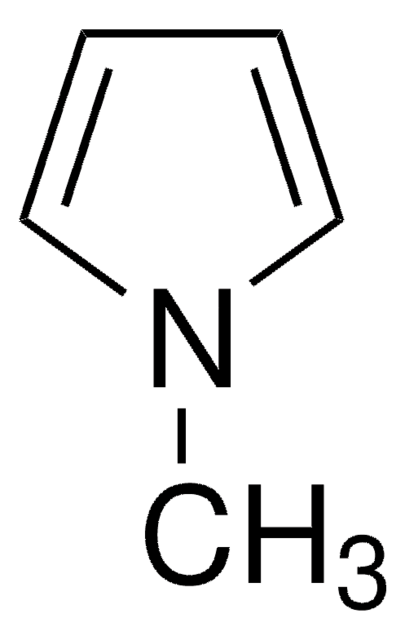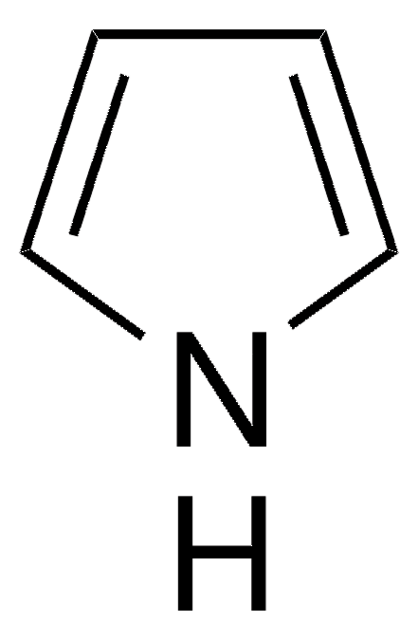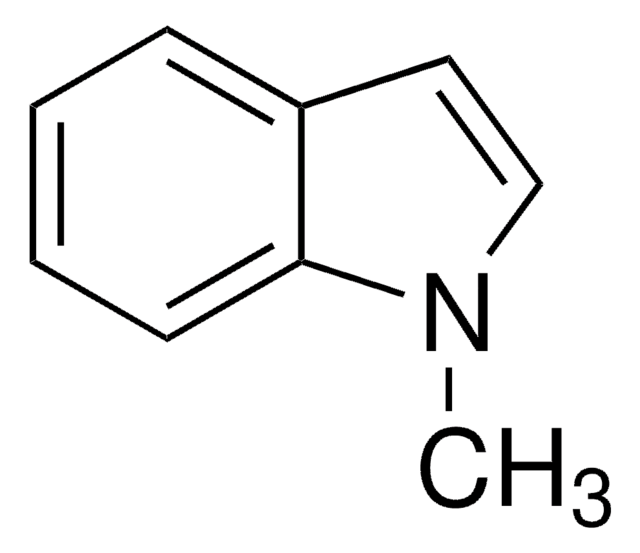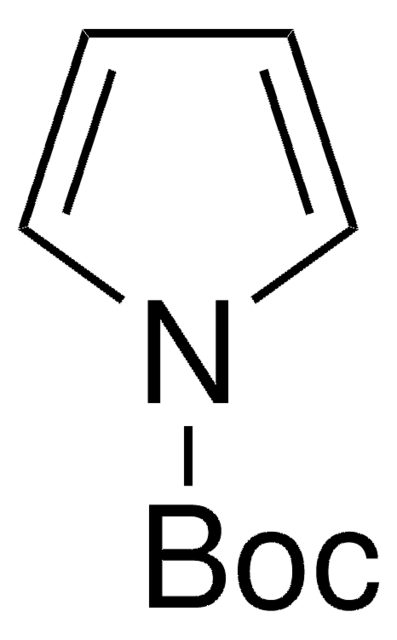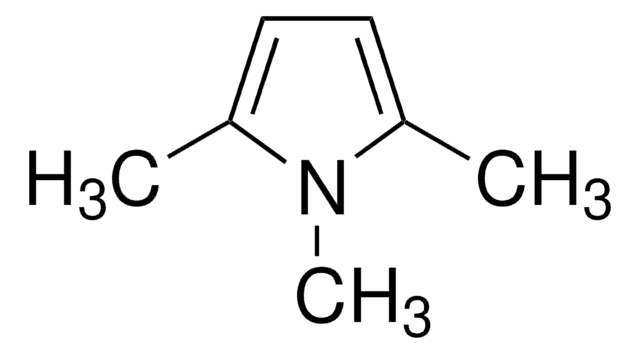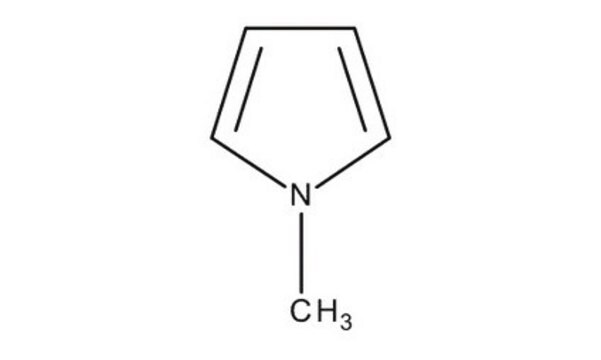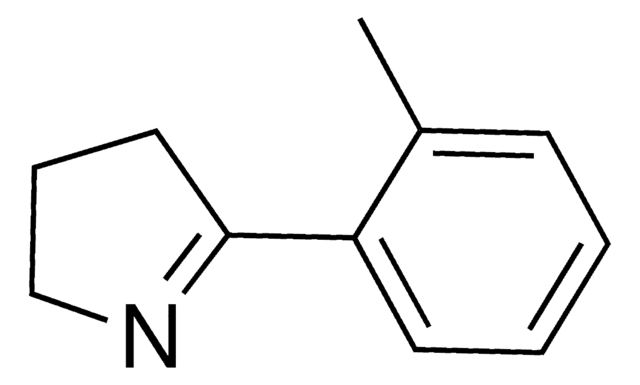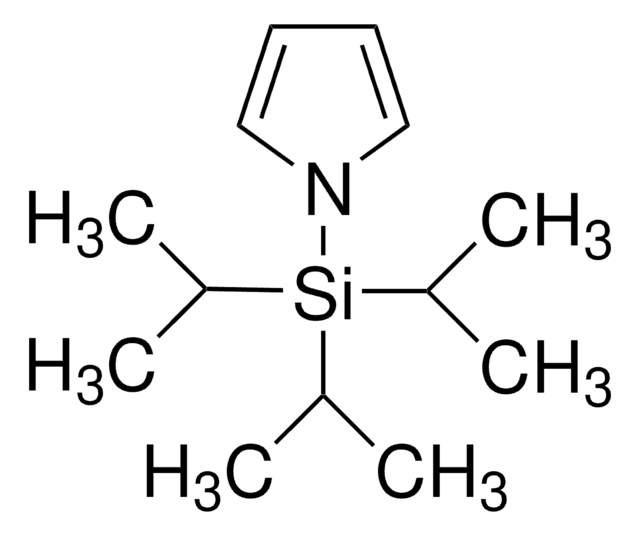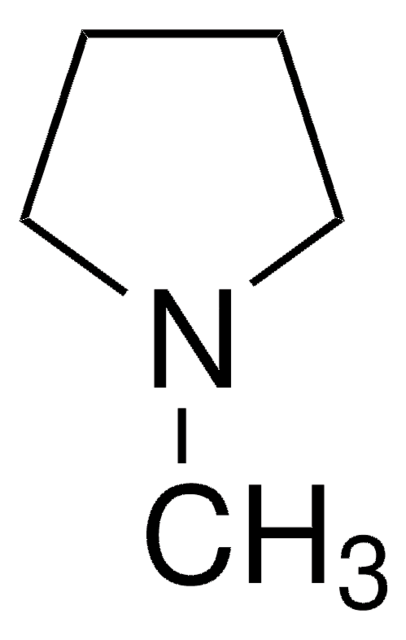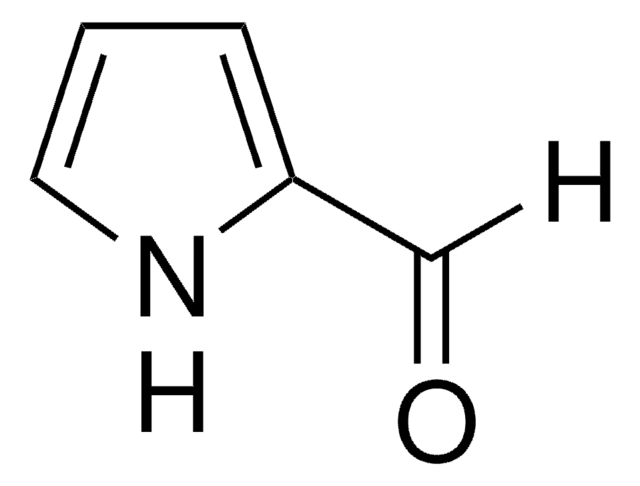All Photos(1)
About This Item
Empirical Formula (Hill Notation):
C10H9N
CAS Number:
Molecular Weight:
143.19
EC Number:
MDL number:
UNSPSC Code:
12352100
PubChem Substance ID:
NACRES:
NA.22
Recommended Products
Assay
99%
form
solid
bp
234 °C (lit.)
mp
58-60 °C (lit.)
SMILES string
c1ccc(cc1)-n2cccc2
InChI
1S/C10H9N/c1-2-6-10(7-3-1)11-8-4-5-9-11/h1-9H
InChI key
GEZGAZKEOUKLBR-UHFFFAOYSA-N
General description
1-Phenylpyrrole inhibited cytochrome P-450 dependant monooxygenase activity in microsomes from rat liver.
Application
1-Phenylpyrrole was used to study the half-wave potentials of the aqueous redox couples and the oxidation potentials of the monomers in 1,2-dichloroethane.
Signal Word
Warning
Hazard Statements
Precautionary Statements
Hazard Classifications
Eye Irrit. 2 - Skin Irrit. 2 - STOT SE 3
Target Organs
Respiratory system
Storage Class Code
11 - Combustible Solids
WGK
WGK 3
Flash Point(F)
Not applicable
Flash Point(C)
Not applicable
Personal Protective Equipment
dust mask type N95 (US), Eyeshields, Gloves
Choose from one of the most recent versions:
Already Own This Product?
Find documentation for the products that you have recently purchased in the Document Library.
Customers Also Viewed
T Viswanathan et al.
Journal of medicinal chemistry, 24(7), 822-830 (1981-07-01)
The inhibitions of cytochrome P-450 dependent monooxygenase activity in microsomes from rat liver by 1-phenylpyrrole, 1-(2-isopropylphenyl)pyrrole, 4(5)-phenylimidazole, and 1-(2-isopropylphenyl)imidazole have been compared. The results establish that the presence of an imidazole N-3 nitrogen substituent is not required to inhibit the
Formation of oligomers of methyl-and phenyl-pyrrole at an electrified liquid/liquid interface.
Chemical Communications (Cambridge, England), 19, 2163-2164 (1998)
Kangmin Kim et al.
Journal of the American Chemical Society, 141(15), 6279-6291 (2019-03-28)
Amine-peroxide redox polymerization (APRP) has been highly prevalent in industrial and medical applications since the 1950s, yet the initiation mechanism of this radical polymerization process is poorly understood so that innovations in the field are largely empirically driven and incremental.
Our team of scientists has experience in all areas of research including Life Science, Material Science, Chemical Synthesis, Chromatography, Analytical and many others.
Contact Technical Service